#Eiga Given
Text

藤[Fuji]
Wisteria floribunda
紫式部といふのは無論宮廷󠄁の呼名で、彼女の本名は全然傳はつてゐない。そして宮仕當初は藤󠄁式部の名で召されたらしく、榮華物語の初花卷・岩陰卷・日蔭葛卷には卽ち藤󠄁式部とあり、ずつと後卷の楚王の夢卷になると紫式部と記されてある。藤󠄁式部の藤󠄁は、姓の藤󠄁原氏の略稱󠄁であること、淸原元輔の女であつた淸少納言、赤染時用の女であつた赤染衞門の場合と同樣で、當時の一般慣行として當然である。
[Murasaki shikibu to iu nowa muron kyūtei no yobina de, kanojo no honmyō wa zenzen tsutawatte inai. Soshite miyazukae tōsho wa tō no shikibu no na de mesareta rashiku, eiga monogatari no hatsuhana no maki · iwakage no maki · hikagenokatsura no maki niwa sunawachi tō no shikibu to ari, zutto shimaki no so'ō no yume no maki ni naruto murasaki shikibu to sirusarete aru. Tō no shikibu no tō wa, sei no fujiwara shi no ryakushō de aru koto, kiyohara no motosuke no musume de atta sei shōnagon, akazome no tokimochi no musume de atta akazome emon no baai to dōyō de, tōji no ippan kankō toshite tōzen de aru.]
The name Murasaki Shikibu was, of course, a given name in the Imperial Court, and her name has not been transmitted at all. In the beginning of her palace service, she was apparently used under the name Tō-no Shikibu (or Tō Shikibu,) and in Volume Hatsuhana · Volume Iwakage and Volume Hikage no katsura of the Eiga monogatari, (her name) is written as it is, Tō-no Shikibu, and in a much later volume, Volume So'ō no yume, (her name) is written as Murasaki Shikibu. Tō(Fuji) in Tō-no Shikibu is the abbreviation for (her) family name Fujiwara; as well as the case with Sei(Kiyo) Shōnagon, who was the daughter of Kiyohara-no Motosuke, and Akazome Emon, who was the daughter of Akazome-no Tokimochi, it was a general customary practice in those days.
https://en.wikipedia.org/wiki/Eiga_Monogatari
https://en.wikipedia.org/wiki/Sei_Shōnagon
https://en.wikipedia.org/wiki/Akazome_Emon
From The name of Murasaki Shikibu by Shimazu Hisamoto
Source: https://dl.ndl.go.jp/pid/1882744/1/52 (ja)
22 notes
·
View notes
Text
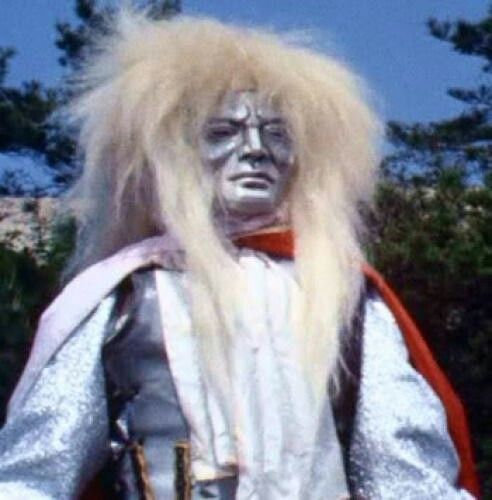
No, this ain't some refugee from an '80s glam metal band! This is the Japanese tokusatsu hero Shiro Jishi Kamen, aka White Lion Mask, star of the eponymous television series.

Produced by the now-defunct Nippon Denpa Eiga, White Lion Mask ran for 13 episodes from April 4 to June 27, 1973.
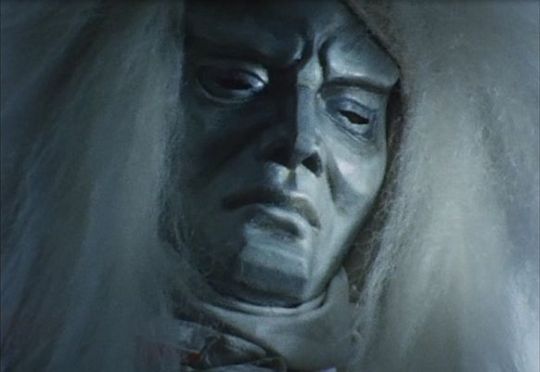
Frankly, I dunno where the name White Lion Mask came from, because that's NOT a lion mask, and there's nothing remotely lion-like about this guy. Although he is pretty creepy looking.

Shiro Jishi Kamen (White Lion Mask) doing his signature hair tug. I think the suit actor did this so the wig wouldn't fly off when he did back-flips.
I think the "white lion" part comes from the wig, which vaguely resembles the mane of Kaiketsu Lion-Maru, whose popular series had begun broadcasting a year earlier.

P Productions' Kaiketsu Lion-Maru. Now that's a real lion mask!
Beyond the hair style, both series had other similarities: both were satin Japan around the year 1600; both characters were ordinary men given the ability to transform into powerful warriors; both fought fantastical enemies; both had a woman and little boy as sidekicks; and both rode magical horses that appeared when summoned, although Lion-Maru's had wings and could fly.

White Lion Mask's secret identity was a young samurai named Hyoma Tsurugi. He was tasked by a magistrate, Echizen Ooka (based on a real historical figure), to deal with evil yokai that were terrorizing the countryside.
Tsurugi battles the first group of yokai, the Wolfmen, but is defeated and left for dead in a cave. A supernatural entity decides to gift Tsurugi the ability to transform into the powerful White Lion Mask in order to combat and defeat the yokai.
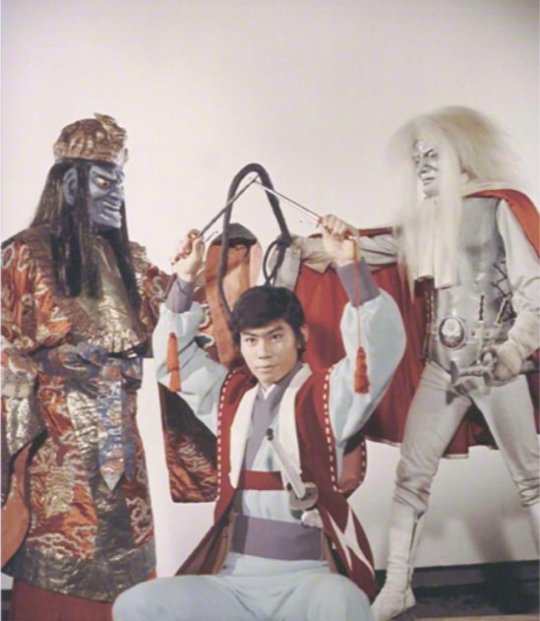
Infernal Devil, also called Daimoah, ruler of the evil yokai; Hyoma Tsurugi; and White Lion Mask.
White Lion Mask battled a different type of yokai every episode. While he was skilled with a sword and other bladed weapons, the tool he used most often was a long whip. There was also an episode wherein he was able to emit a powerful light that weakened the yokai.

White Lion Mask astride his magic horse, which wears a mask to protect its secret identity.
Unfortunately, White Lion Mask was up against some stiff competition on the television scene with other period jidaigeki tokusatsu shows - Fuun Lion-Maru, Henshin Ninja Arashi, and Demon Hunter Mitsurugi, to name a few - and had a hard time finding an audience. This led to the show's sponsor to drop it, and White Lion Mask stopped broadcasting for a short while.
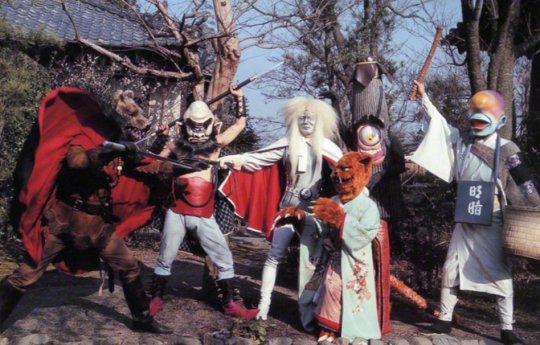
A new sponsor was found, but the writing was on the wall: White Lion Mask's run was over. The series was cut short, and the storyline was wrapped up in the 13th - and final - episode. White Lion Mask takes on several resurrected yokai that he had defeated earlier in the series, before finally going mano a mano with the big bad, Daimoah the Infernal Devil.
The series finally received a DVD release in Japan in 2003, after several years of various parties haggling over the rights (Nippon Denpa Eiga went bankrupt in 1990). The DVD is currently out of print, but I've managed to find a few episodes on YouTube. They are not subtitled or dubbed, but I hold out hope that some enterprising soul will get around to doing so someday.
Here's the first episode, in case you're interested:
youtube
#White Lion Mask#Shiro Jishi Kamen#Kaiketsu Lion-Maru#tokusatsu#jidaigeki#yokai#suitmation#Nippon Denpa Eiga#Japanese superheroes
14 notes
·
View notes
Text



Eiga Given Hiiragi Mix: Akihiko & Haruki & Mafuyu & Uenoyama Mini Acrylic Stands - Pukasshu (Bell House)
So small and cute! 💕
6 notes
·
View notes
Photo
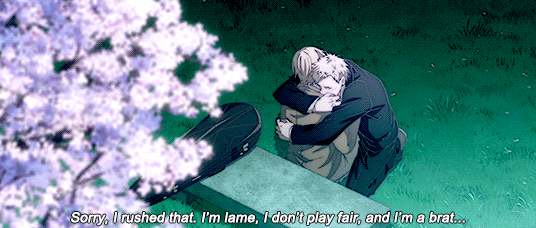
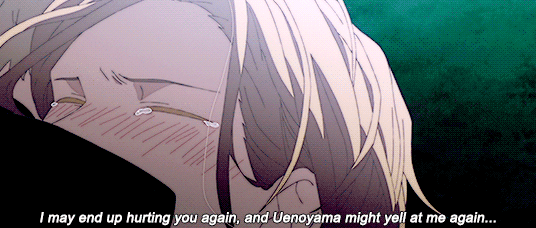


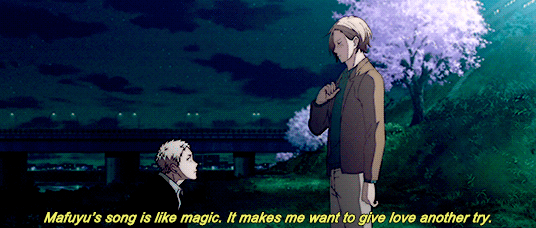

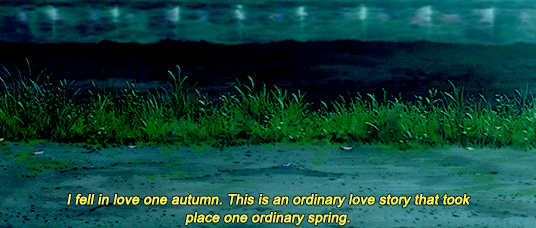
But ever since I heard Mafuyu’s song, I wanted to change. - Given Movie - Aug 22, 2020
#Given#fyeahgiven#givenedit#dailygiven#Haruki Nakayama#Akihiko Kaji#Given Movie#Eiga Given#Nakayama Haruki#Kaji Akihiko#My GIFS#My post#Long post
640 notes
·
View notes
Photo
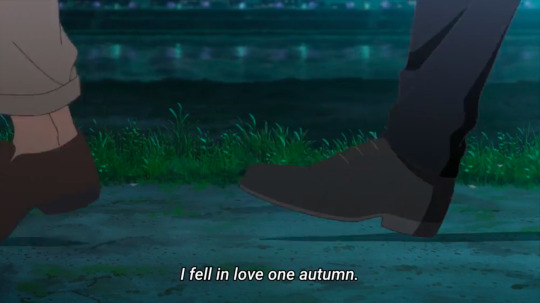
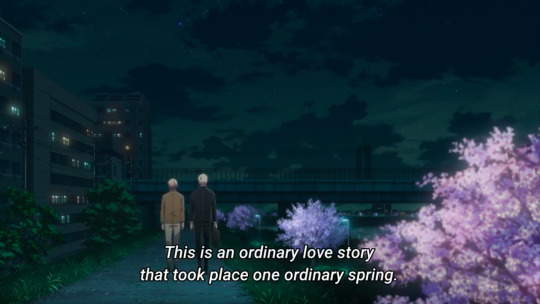
Given / ギヴン (Japan, 2020)
directed by Hikaru Yamaguchi
2 notes
·
View notes
Text
[Kanji & Romaji Lyrics] センチミリメンタル 「僕らだけの主題歌」 || Centimillimental - Bokura dake no Shudaika

***** If you find any mistakes, please tell me and I will edit the lyrics. Thank you!
Feel free to share the lyrics ^^ *****
Lyrics source
Kanji lyrics :
もう戻れないね
春を待つ僕らの青い痛みを
愛や夢でごちゃ混ぜにして走った
ぼやけていくのに消えはしないような
じゃれ合いの中でついた傷を
重ねた場所とは違う所から
歩き出すから
泣きじゃくった日々を背に
僕は行くよ
ねえ見ててよ
可笑しくて笑った
すれ違い怒った
あなたとの夢を叶えてくるよ
悲しいときすごく辛いとき
思い出す記憶を過ごした時間を
この心の背もたれにして
今度後ろを振り向くときは
手でも振って笑いあえたらいいな
森の奥深く迷い込んでても
差し込む朝日に夜明けを知る
たとえ見えなくても
過去未来今が手を繋いで
次の夜を照らしてる
ここにいるよ
そばに来てよ
置き去りの願いもまだ残してるんだ
何食わぬ顔で生きていても
会いたいとき抱きしめたいとき
思い出す記憶を過ごした時間を
見えぬ未来の灯りにして
もう消えたい逃げたいと
叫んだ絶望の中を
出会いも奇跡さえも恨んだ
最低なあの日を
無かった事には出来ないのだから
それでも生きて良かったって
せめて最後に思えますように
もう戻れないね
僕は行くよ
ねえ見ててよ
あなたより大事なもの探してくるよ
何よりも大事なあなたのために
会いたいとき抱きしめたいとき
思い出す記憶を過ごした時間を
この心の背もたれにして
何回も歌うよ大事な思いを
僕らだけの主題歌にして
Romaji lyrics :
Mou modorenai ne
Haru o matsu bokura no aoi itami o
Ai ya yume de gocha maze ni shite hashitta
Boyakete iku no ni kie wa shinai you na
Jare ai no naka de tsuita kizu o
Kasaneta basho to wa chigau tokoro kara
Arukidasukara nakijakutta hibi o se ni
Boku wa iku yo
Nee mitete yo
Okashikute waratta
Surechigai okotta
Anata to no yume o kanaete kuru yo
Kanashii toki sugoku tsurai toki
Omoidasu kioku o sugoshita jikan o
Kono kokoro no semotare ni shite
Kondo ushiro o furimuku toki wa
Te demo futte warai aetara ii na
Mori no okufukaku mayoikondete mo
Sashikomu asahi ni yoake o shiru
Tatoe mienakute mo
Kako mirai ima ga te o tsunaide
Tsugi no yoru o terashiteru
Koko ni iru yo
Soba ni kite yo
Okizari no negai mo mada nokoshiterunda
Nani kuwanu kao de ikiteite mo
Aitai toki dakishimetai toki
Omoidasu kioku o sugoshita jikan o
Mienu mirai no akari ni shite
Mou kietai nigetai to
Sakenda zetsubou no naka o
Deai mo kiseki sae mo uranda
Saiteina ano hi o
Nakatta koto ni wa dekinai no dakara
Soredemo ikite yokattatte
Semete saigo ni omoemasu you ni
Mou modorenai ne
Boku wa iku yo
Nee mitete yo
Anata yori daijina mono sagashitekuru yo
Nani yori mo daijina anata no tame ni
Aitai toki dakishimetai toki
Omoidasu kioku o sugoshita jikan o
Kono kokoro no semotare ni shite
Nankai mo utau yo daijina omoi o
Bokura dake no shudaika ni shite
#Lyrics#センチミリメンタル#僕らだけの主題歌#Centimillimental#Cenmilli#Bokura dake no Shudaika#ギヴン#映画 ギヴン#Given#Eiga Given#Given Movie#I cried when I typed these lyrics#I'M NOT READY AAAAAAAAA#AAAAAAAAAAAAAAAAAAAAA#Mou modorenai ne INTENSIFIES#This song hurts me#Nah JK#This song is very good
5 notes
·
View notes
Text
Given Movie: Anime Eiga Interview
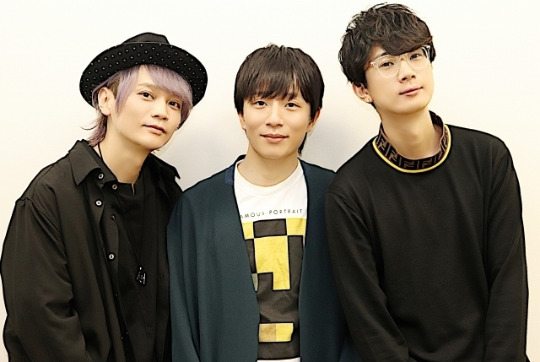
The adult trio of “Given”, Nakazawa Masatomo, Eguchi Takuya and Asanuma Shintarou – finding out about each other’s appeal through proffering a deep love.
The sequel to the TV series that adapted Ms. Kizu Natsuki’s popular BL manga into an anime came in the form of “Given the Movie” and made its appearance in the big screen. Along with sensible expressions of emotion, this series depicts the circumstances of youthful love connected by music, capturing the hearts of the viewers. The movie portrays the “bitter and passionate love” between the band’s “adult members”, Haruki and Akihiko, as well as Akihiko and his ex-boyfriend, the genius violinist Murata Ugetsu, whom he continues to live with even after breaking up. Hence, this time, we have hit up Nakazawa Masatomo, the voice of Haruki, Eguchi Takuya, the voice of Kaji Akihiko, and Asanuma Shintarou, the voice of Ugetsu. What kind of appeal did they sense from one another after co-acting in roles where they had to proffer intense love? We had each of them discuss their thoughts.
Discovering the charm of the characters anew in a movie where the feelings of each accelerate.
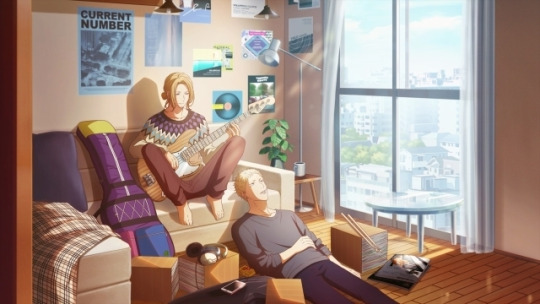
——The movie is about the romance between Haruki, Akihiko and Ugetsu. The thoughts that they had been concealing are exposed, so what were your impressions when you read the script?
Nakazawa: In the TV series, Haruki, the character I play, was thinking about “wanting the band to do well” and “what he should do for the band’s sake”, being a “sideline support” for Mafuyu and Ritsuka, together with Akihiko. Haruki and Akihiko are said to be part of the “adult group”, but the two of them have their own ways of thinking - Akihiko is the type that aims for good things by taking action using a detonator. On the other hand, Haruki is always calmly concerning himself with everyone, so that they can do things freely. Both of them listened to Mafuyu’s singing voice, were influenced by it and suffered changes, so I felt from the script that I could get a glimpse at these changes. Regarding Haruki, he started feeling his own loneliness more strongly, and while watching Mafuyu display his musical talent more and more, he also had a complex about being just an ordinary person who liked music a little bit. I felt like we were able to see what Haruki was carrying under the surface.
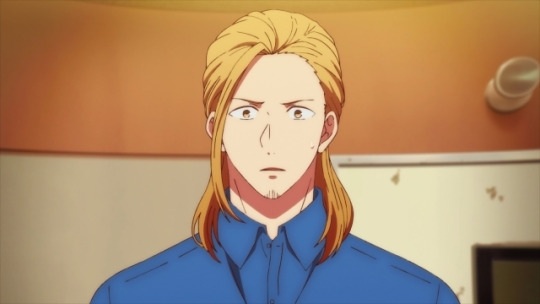
——Were there any points where you felt the appeal of Haruki and Akihiko all over again?
Nakazawa: There were. Haruki never tells Akihiko that he likes him and does his best to hide it. It’s totally obvious, though... (laughs). Through Haruki, I felt that there are things you convey not with words but with feelings, and on the other hand, there are things that can finally be conveyed when you put them into words.
——Eguchi-san plays the role of Akihiko. Please tell us your impressions of the script.
Eguchi: I had read the original work, so I was looking forward to seeing the hearts of everyone from the “adult group” being moved and them putting an end to things. When I read the script, this is quite obvious, but I had many lines (laughs). Akihiko shows in it a part of himself that he never had until then, so destroying something like a sculpture of Akihiko that the TV series had warmed up was necessary work. Moreover, it was the kind of scrip that allowed for all kinds of fun, such as how long the monologues and narrations should be, so I felt a strong sense of compensation from it. During the recordings, I first tried throwing in what I had come up with. The team makes you want to create something together with them, so I felt like making up my mind and challenging myself. I was very happy to be able to take on the challenge.
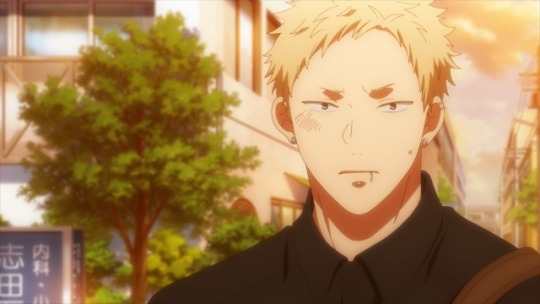
——When you threw it in, were you able to see a new side to Akihiko’s appeal?
Eguchi: “So he was THAT compassionate?!” was what I thought. Akihiko is always cool, so I wondered when his emotions would take a swing, but I think this was a sign that he was afraid of “changing the present”. In the movie, I had to carry out the job of Akihiko properly facing all sorts of things and doing a retake on his true feelings. He gave off more of an adult impression until that point, so I think I got to see a more realistic, young part of him.
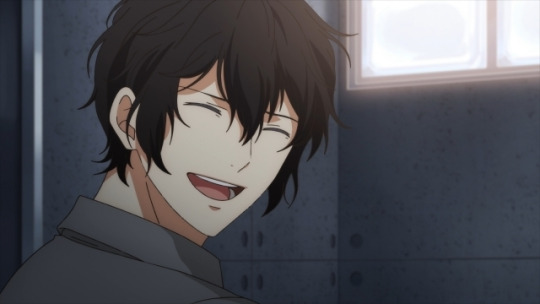
——Asanuma-san plays the role of Ugetsu, who continues living with Akihiko after breaking up.
Asanuma: There were few episodes in the TV series where Ugetsu showed up, but even in them, there are crucial scenes in which you can get a glimpse that “Ugetsu is this kind of person”. It’s exactly because he is a genius that he acts indifferent about anything other than music, gets fawned on in a genius-like way that makes people think, “If he says so, then there’s no helping it”, and has great interest in people like Mafuyu, whom he feels sympathy for. There’s a scene in the movie where Ugetsu and Mafuyu meet for the first time, and when I read the script, I felt that “Ugetsu approached Mafuyu with honest feelings”. It’s because he has sympathy for Mafuyu that he ends up telling him things that he can’t say to Akihiko face-to-face, such as “I love Akihiko to death”, and shows a side of himself that he usually doesn’t show to other people. It seems he speaks out his feelings when he’s with Mafuyu for some reason, which made me wonder if it isn’t Mafuyu who has the power to make people act like that.
——Ugetsu has a mysterious charm as a character. Was there anything you deemed as important when performing him?
Asanuma: It was my first time taking part in a BL show, but I felt that “Given” is a series that portrays emotions very delicately, down to the details. When performing, it’s exactly because the depictions of emotions are detailed that I make sure not to be “too theatrical”.
Love becomes more complicated as you grow older?
——In the TV series, we were able to see Mafuyu and Ritsuka’s high schooler-like romance, yet the movie is about an “adult love”, where they are “going through unfulfilling and agonizing situations, but no matter what, they like each other”. Was there anything you felt seeing their love?
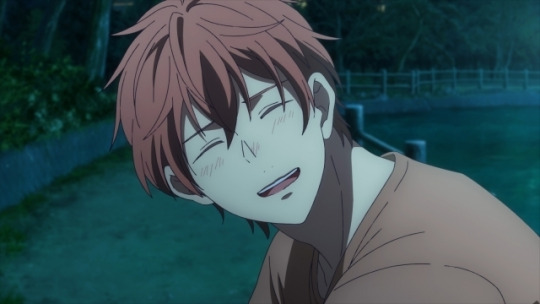
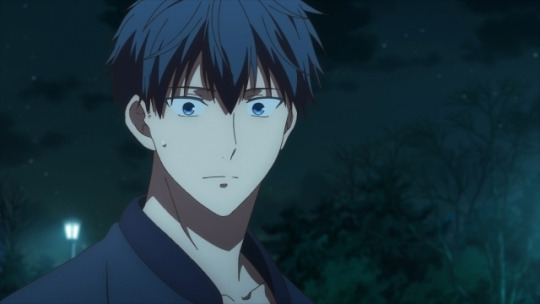
Asanuma: There are things that we end up complicating precisely because we have accumulated experiences as adults. It’s because we know about all sorts of things that we don’t want to get in the other’s way and feelings of inferiority towards the other are born. When you’re a child, you don’t think much about things such as “pulling away because you think too much about the other person”, for example. There are many things we have to face when we become adults, so we might turn the feeling of “romantic love” around in complicated ways.
Nakazawa: I think “being able to break up once and for all” is important in adult romance as well. Not clashing with each other like, “I can’t do this with you anymore!” and parting ways, but instead ending it with, “If that’s how it is, it might be better for us not to be together anymore” after learning about each other’s circumstances is also a form of love. I think that reflecting about not just the feeling of “love”, but also about what you should do to make the “we can’t be together anymore” that lies ahead into a reality is what adult romance is.
Asanuma: They’re called the “adult group”, but they’re not adults yet. Even I, who am in my 40’s, have yet to come across anything like an “unconditional love”...
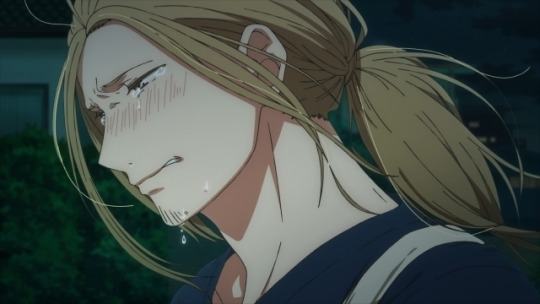
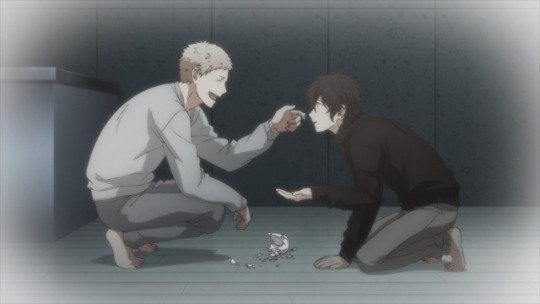
Eguchi: I believe this is valid for all kinds of romantic love, but I think it’s about being together with someone because you find that person to be an “irreplaceable existence”. And it’s because they’re irreplaceable that going out with them isn’t the goal, and the couple has to properly face one another. Also, when I looked at their romance, I felt it’s precisely because they like and are close to each other that there are words between them that they can’t say. They might have had a different relationship if they had conveyed those words, but there are words that can’t be conveyed exactly because this possibility exists. I think humans are extremely complex.
“Eguchi-kun is sharp!” – A casting that fit perfectly.
——What kind of appeal did you feel in each other’s acting and personalities through “Given”?

Nakazawa: The way that Asanuma-san bears a “quiet intensity” when playing as Ugetsu is very charming.
Asanuma: For real!?
Eguchi: And you’re also too good at putting on the air of a genius!
Asanuma: It’s only putting on, though. I have to make sure not to take it off too soon (laughs).
Eguchi: It had me thinking, “The way he envelops himself in the air of a genius is just genius!” Asanuma-san can push and pull splendidly. I was thinking, “He’s so awesome” when I watched it.
Asanuma: There are times when I tend to explain things with my voice no matter what. Before, in a different work, the sound director told me, “The animation is already doing the explanation, so you don’t have to try to explain with your voice so much.” In works like this one, where the subtleties of the characters’ hearts are so detailed, I think it’s even more important to bear in mind “not being too theatrical”, without deeming it as an exception just because it’s a BL, but instead seeing it as a love pattern that could happen anywhere and performing naturally.
——What is your impression of Nakazawa-san?
Asanuma: Nakazawa-san is tolerance incarnate! He can be no one but Haruki.
Eguchi: That’s right. He gives off a “mom” vibe (laughs). He’s like that during the recordings too; Nakazawa-san himself is a very soft person.
Asanuma: And although he may disagree, “looking troubled” suits him.
Nakazawa: I disagree!
All three: (Burst into laughter).
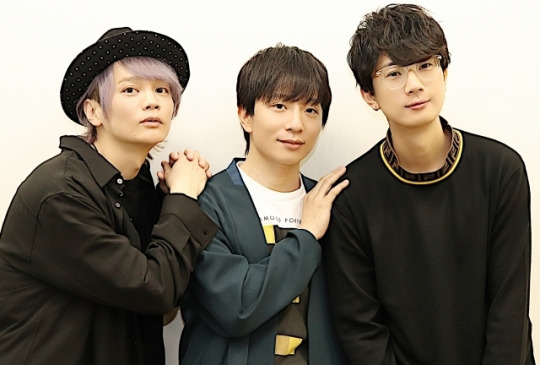
Asanuma: Since being troubled suits you, it feels like people gather around you, thinking that they “want to try and give you trouble” without any ill intent.
Nakazawa: That rings a bell (laughs). Indeed, I myself think that I have a Haruki-like side too. I also have a side that accepts basically anyone and any kind of comment... As for Eguchi-kun, if nothing else, he’s sharp! In terms of voice quality, his tone is low-pitched and solid, so the acting that he brings out is extremely sharp. There’s a fineness to it where it acts as a detonator, especially in “Given”, as if it will set fire, to his heart’s contentment, to anything that seems inflammable. He pulls off an acting that has an explosiveness to it, as he takes ahold of the important points while performing in a natural manner, so I have a lot of trust in him.
Asanuma: Eguchi-kun gives off a sense of broad-mindedness and security. Not because his body is big, though (laughs). I feel that he’s something like an emotional bodyguard. It was my first time in a BL series, but when I heard that Eguchi-kun would be the other party, I vaguely thought that “everything will go well”.
Eguchi: Thank you so much!
#given#dailygiven#givendaily#dailyshounenai#fyeahgiven#given movie#nakayama haruki#kaji akihiko#murata ugetsu#eguchi takuya#seiyuu#asanuma shintarou#nakazawa masatomo#my translation#interview#anime eiga
46 notes
·
View notes
Quote
Nawet jeśli nie mogę spać, nastanie nowy dzień
A ja siedzę tutaj, gapiąc się na to
Nawet na tą niezmienną białą ścianę
Świeci poranne słońce, a zegar tyka naprzód
Odsuwam się
Od pór, które spędziliśmy razem
Jednakże, chcę przejść przez tę noc
Nawet jeśli nie mogę spać, nastanie nowy dzień
A ja siedzę tutaj, gapiąc się w to
Wszystko się zmienia, rzeczy się kończą
Rzeczy zaczynają żyć bez ciebie
Nawet jeśli cię już nie ma, dalej mogę żyć
Bardzo mnie to zasmuca
Spójrz, świt już się zbliża
Nadchodzi nowy dzień
Kwitnie wiosną, więdnie jesienią
Ale kiełkuje nadal, w kółko i w kółko
Zdaję sobie sprawę, że to to nie to, co minęło
Ale to co się stanie
Nawet jeśli nie mogę spać, nastanie nowy dzień
Kiedyś połączone ręce się rozdzielą
Nawet jeśli zgubię drogę i wypłacze sobie oczy
Kiedyś w końcu przestanę
Nawet jeśli cię już nie ma, dalej mogę żyć
Nawet jeśli nie mogę być kochanym, tęsknie za tobą
Spójrz, świt już się zbliża
Nadchodzi nowy dzień
Kiedy nikt nie wie, czy życzenie się spełni
Ludzie nazywają to nadzieją
Nawet jeśli już cię nie ma, nadejdzie nowy dzień
Rozdzielone ręce wkrótce się połączą
Po długiej nocy odkryliśmy światło
Nawet jeśli się boję, mogę żyć dalej
Kiedy wzejdzie słońce, znowu zrobię krok naprzód
Spójrz, świt już prawie nadchodzi
Więc nie martw się
Spójrz, już wkrótce, właśnie tam
Nadejdzie nowy dzień
„W kółko zastanawiam się, co bym zrobił, gdyby Akihiko nigdy nie wrócił. Nieważne, ile razy już o tym myślałem, nadal nie potrafię sobie tego dokładnie wyobrazić. Może pojawi się jutro, jak gdyby nigdy nic? A może nie? W każdym razie, chcę żeby to cierpienie wreszcie się skończyło. A z drugiej strony, nie chcę, żeby te wszystkie rzeczy w tym pokoju, po prostu zniknęły. Może coś zostanie... Nawet jeśli między nami nie może być tak jak kiedyś. Nawet jeśli odejdziemy gdzieś daleko...Mam nadzieję, że muzyka pozostanie.” - Ugetsu Murata
2 notes
·
View notes
Text
Kamata Prelude, Midnight Swan, My Sweet Grappa Remedies, Keep Your Hands off Eizouken! Live-Action, How Neya Ryoka Became a Director, ATEOTD – At the End of the Day and Other Japanese Film Trailers
Kamata Prelude, Midnight Swan, My Sweet Grappa Remedies, Keep Your Hands off Eizouken! Live-Action, How Neya Ryoka Became a Director, ATEOTD – At the End of the Day and Other Japanese Film Trailers
Happy weekend, everyone.

We have made it through another week.
I have been busy posting things such as a round up of the Japanese films at the Vancouver International Film Festival, the London Film Festival, Skip City D-Cinema Festival and an interview with Urara Matsubayashi and Mayu Akiyama for their work on Kamata Prelude and a post about the Kickstarter campaign for Noriko Yuasa’s latest…
View On WordPress
#ATEOTD – At the End of the Day#Eiga Ningen Isu Bando Seikatsu San Juu-nen#HARAJUKU Seven Days Given by an Angel#How Neya Ryoka Became a Director#Japanese Film Trailers.#Kamata Prelude#Keep Your Hands off Eizouken! Live-Action#Midnight Swan#Moshi moshi Atashitachi ga Saisai Janakattara. &HERO DOCUMENTARY FILM#Mouseman: Ai no Katamari#My Sweet Grappa Remedies#The Name of that God is Jealousy#Yume wo Ataeru
0 notes
Text
Saw Monster Hunter, never mind how.
The first act is an Aliens speedrun in the desert; Milla Jovovich loses her entire squad before most of them can even be assigned their one distinguishing trait. Then she meets a nameless man from the Monster Hunter world (Tony Jaa) and it turns into Hell in the Pacific with giant monsters. This is where the movie really sings; crisis-induced camaraderie and marvelous plots against a dragon who doesn’t seem to know how to die. The Black Diablos earns her place on all those posters, even though there’s a bigger beast to come; you have to admire a monster who goes berserk if so much as a fist-sized rock falls onto her sand lawn. The third act gets bogged down with more characters (including Ron Perlman with a hilarious wig) and meaningless exposition, but it also turns into a proper kaiju eiga when a Greater Rathalos makes it way to our world and starts laying waste to every military vehicle in sight. The Toho logo at the beginning had a galactic flourish, and they can be proud of this one.
Mind you, Monster Hunter would probably play just as well if I saw it dubbed in Japanese; there’s dialogue mostly because audiences expect it, not because it’s conveying anything important. Although considering the punny banter that ended up terminating its release in China, maybe a silent film would’ve made more money. (The offending line is gone, by the way.) This franchise is dead on arrival as a result, which stings a little. Monster Hunter leaves plenty of its world left to explore, and ends on a cliffhanger besides, our tireless heroes charging into battle against still another dragon. Given how often Paul W.S. Anderson did the same thing in the Resident Evil series, I guess I should’ve seen it coming.
3/5
18 notes
·
View notes
Photo
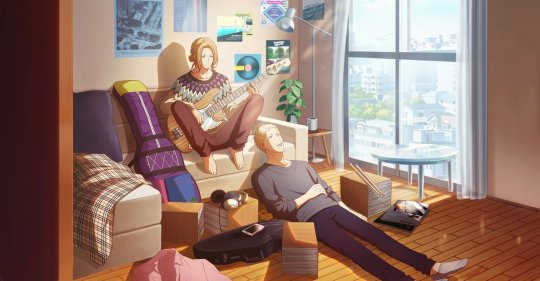
映画 ギヴン
Eiga Given
Given Movie
27 notes
·
View notes
Photo
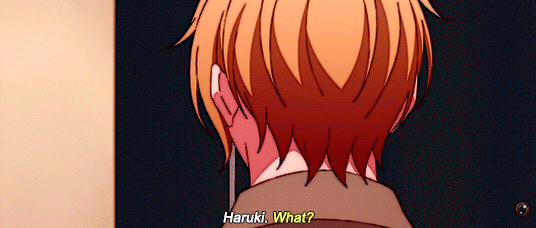

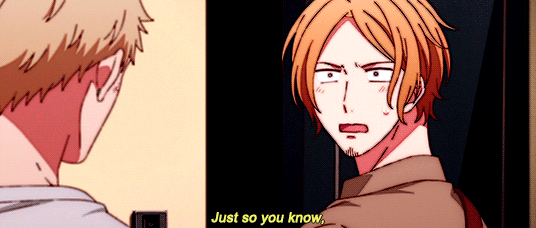
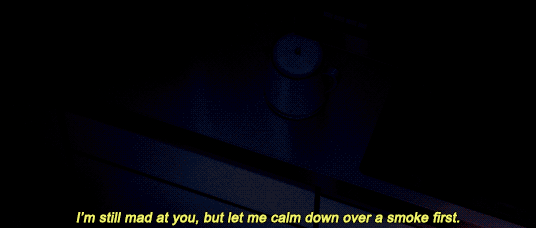


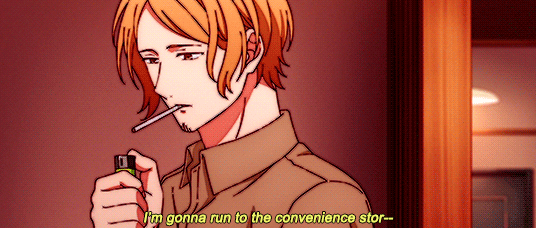
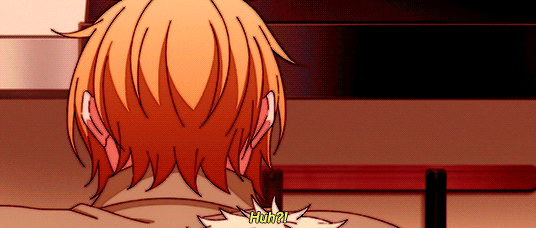
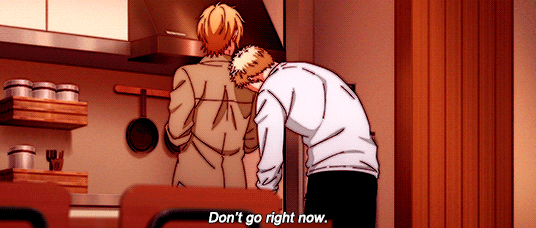
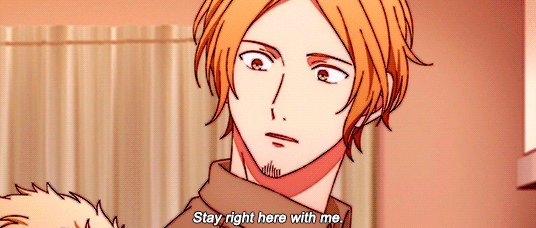
Stay right here with me. - Given Movie - Aug 22, 2020
#Given#givenedit#dailygiven#fyeahgiven#Haruki Nakayama#Akihiko Kaji#Given Movie#Eiga Given#Nakayama Haruki#Kaji Akihiko#My GIFS#My post#Long post
575 notes
·
View notes
Text
IN-DEPTH: How Did Demon Slayer: Kimetsu no Yaiba Become Japan’s Hottest Domestic Franchise?

At this point, it’s safe to say that Demon Slayer: Kimetsu no Yaiba is one of the biggest franchises this decade. The manga series sold more than double what One Piece did at its peak in 2020, the Mugen Train anime film has outgrossed Hayao Miyazaki’s Academy Award-winning Spirited Away to become the king of the Japanese box office, and the franchise is estimated to bring in 270 billion yen to the Japanese economy by itself this year.
Looking at all of that, there is no question that Demon Slayer is the hottest domestic property in Japan right now. But how did it get here? Let’s examine how the little manga series from new author Koyoharu Gotouge became a cultural phenomenon in Japan.
Demon Slayer’s History with Jump
Before the Demon Slayer anime started, the series was running in Weekly Shonen Jump, one of Japan’s top manga magazines. The series started in Jump on February 15, 2016, and had modest success, with around 3.5 million copies of the manga series printed and sold as of February 2019, just a few months before the anime premiered in April 2019.
During Jump Festa 2017 — an annual exhibition for series being released by Shueisha in Weekly Shonen Jump and their other manga magazines — the first chapter of Demon Slayer was given out in a sample booklet alongside other new series that had started in 2016, such as THE PROMISED NEVERLAND. Outside that sample booklet though, Demon Slayer barely existed in the mind’s eyes of attendees, with gazes glued to NEVERLAND and BORUTO as the new hot series.
It wasn’t until Jump Festa 2020 (held in December 2019) that Demon Slayer got some time in the spotlight, with the Aniplex booth doing its best at showing off the series that had become such a hit over the previous summer.

Demon Slayer at the Aniplex booth during Jump Festa 2020 (photo: Daryl Harding)
Even though the collected manga volumes weren’t selling as much as one might expect from the now behemoth of a series, Demon Slayer was slowly gaining traction among fans, but wouldn’t really break out until just before the first episode of the TV anime aired on television in Japan.
The Outside Influences Brought into Demon Slayer
When the Demon Slayer TV anime was announced in June 2018, it was revealed that the studio Ufotable would be adapting the series. The Aniplex-affiliated studio is widely praised for their work on the Fate franchise, which has culminated with the Fate/stay night [Heaven’s Feel] film series. Ufotable-produced works are known to already be event-type series, and with Demon Slayer being their first Weekly Shonen Jump adaptation, it was a series to look forward to on that point alone.

First Demon Slayer TV anime key visual (source: Anime Eiga)
Just before the series premiered in April 2019, it was also revealed that popular singer LiSA — who was then mostly known for her work on the Sword Art Online openings, including the wildly popular theme to the Ordinal Scale anime film “Catch the Moment” — would be singing the opening theme for the series, with the first preview of the song at Anime Japan that year. LiSA went on to have a solo concert at the Yokohama Arena on the last days of the Heisei era in April 2019, selling out the 17,000 capacity hall.
youtube
AnimeJapan 2019 Trailer
Music can be a huge element in propelling the popularity of a series in Japan. Some of the biggest anime over the last decade was supported by their opening and ending themes, which kept the anime in people's minds. Demon Slayer’s opening theme “Gurenge” became such a hit in its own right that it dragged the rest of the series along with it. This formula worked to bring Your Name to the forefront of Japanese pop culture in 2016 — you couldn’t go anywhere in Tokyo without hearing Radwimps. And the double whammy of “Gurenge” and “Homura” (the theme for Demon Slayer: Mugen Train) has helped the series achieve even more success.
Rounding out the series was the star-studded voice cast who all have their own fan bases. Voicing Tanjiro is Natsuki Hanae, who was best known at the time for Ken Kaneki in Tokyo Ghoul; Zenitsu is voiced by Hiro Shimono, who voices Connie in Attack on Titan, and the boar himself Inosuke is voiced by Yoshitsugu Matsuoka, who voices Kirito in Sword Art Online. Nezuko's voice actor Akari Kito, who largely played side characters up until her casting in Demon Slayer, would become a well-known name and go on to play many more lead roles after the series became popular.
On paper, the breadth of talent involved in Demon Slayer far exceeded that of just any TV anime series. The production committee, led by Aniplex, was banking hard on people giving the series a try before the first episode had even aired. And it worked.
Topping the Film Charts before the First Episode Even Aired
Demon Slayer: Mugen Train has topped the film charts since it first premiered on October 18, 2020, but it’s not the first time the series has been in theaters. Prior to the TV airing of the first episode on April 6, 2019, the first five episodes were shown in eleven theaters across Japan starting on March 29. The screenings were dubbed “The Bonds Between Brother and Sister” and topped the mini-theater rankings, with over 10,000 people going in just the first three days.
Ironically the press release from Aniplex announcing that the screenings were being extended in early 2019 said the “excitement for Demon Slayer is at its peak!” If those screenings were anything on the mountain of the popularity of Demon Slayer, they’d be right near the start of the trek.

“The Bonds Between Brother and Sister” Visual
Due to the immense popularity, the two-week special screenings were then extended for another week at all eleven cinemas, which were coming in at Number 1 on the mini-theater rankings (for screenings in less than 30) for the two weeks it was originally scheduled for.
It’s no surprise then that just after these screenings had finished, and during the early broadcast of the anime on TV, that the production committee ordered the Mugen Train arc — which directly follows after the ending of the first season — to be produced as a film, according to industry sources.
Demon Slayer’s Evolving Popularity Throughout Its Airing
Hiroyuki Nakano, the editor-in-chief of Weekly Shonen Jump, spoke to Nikkei Entertainment in the March 2020 issue of the magazine on the slow success of the manga series, explaining that “normally the number of sales of a series increases gradually during the broadcast, but the number of copies sold of Demon Slayer exploded when the broadcast ended.” Nakano alluded to streaming services helping the anime series escalate the popularity of the original series by giving people the accessibility of being able to catch up on the show the next day via services like Amazon Prime and Netflix, who streamed the show weekly in Japan.

Gone are the days where an anime fan would have to record an episode of a late-night anime series because it aired early in the morning. With streaming services on the rise within Japan, that night’s episode of Demon Slayer could be watched the next day on the way to work or school, on the train, or on the toilet.
“I felt that the way people interacted with anime had changed and that we had entered a new phase,” Nakano explained, discussing how Demon Slayer’s rise in popularity was due to the evolving ways of media consumption.
This helped the series when the famous Episode 19 aired, blowing away all expectations of what an anime could do in animation. If Demon Slayer wasn’t already part of the modern anime zeitgeist, that one episode — which trended worldwide on Twitter after airing — propelled the series to the forefront by word-of-mouth. Inside Japan, people couldn’t help but talk about the latest episode of the series, treating it like prime-time event television in the same vein as Game of Thrones would have been in the west.
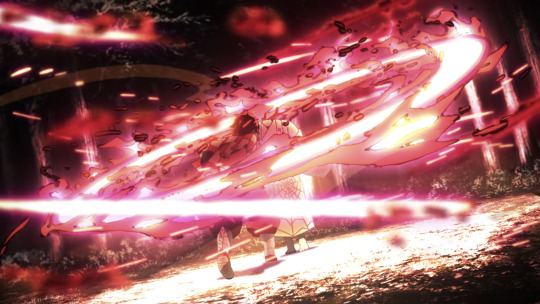
Demon Slayer’s success has also been well documented since the anime finished airing on September 28, 2019. The manga series has broken all records to become the most-sold series for a year, the Mugen Train sequel film is now the highest-grossing film of all time in Japan, and has given Japan the honor of being the third country to have a film reach US $300 million in a single market during its initial run.
Why Does Demon Slayer Resonate With Japanese Audiences?
How Demon Slayer became popular is one thing, but why did this one series, when many others have the same level of talent behind them, become the cultural phenomenon it is today? In December, Oricon released the results of a survey given to Japanese people on how well they know the series, and if so, why did they like it so much.
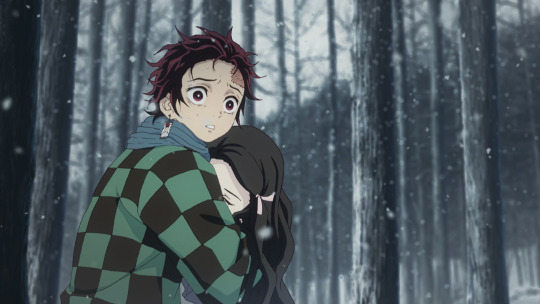
An astonishing 97.6 percent of the 3,848 respondents, who ranged from teens to the elderly, said they knew of the series, with 40.5 percent of people saying they knew it well. Of those who knew the series, they described how they liked the world setting and had sympathy for the characters. A male teenager said that he “was fascinated by the story of the main character growing up while struggling with various difficulties,” while a woman in her sixties enjoyed “the storytelling and LiSA's powerful voice.” A woman in her thirties remarked that she “never thought I'd be talking about anime at my age with my 60-something mother.”
All through the responses, Demon Slayer is bridging the divide between generations, with each generation taking something out of the story that Gotouge has crafted.
The top-notch action scenes and relatable characters draw in the younger crowd, while more middle-aged people get a kick out of the family bonds that weave throughout the story, and the aesthetic of the entire series gives older people a sense of nostalgia, also known as “Taisho romance,” but without it being overly melodramatic about the era. Even kids are going to the schoolyard to reproduce the breathing techniques seen in the series. Japanese Prime Minister Yoshihide Suga joined them when he made a cheeky reference to Demon Slayer’s breathing techniques while speaking to the DIET in November.
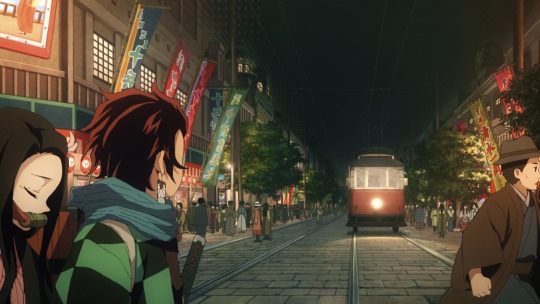
The accumulation of these points has made Demon Slayer a cultural touchstone, one that could only be born out of Japan. Even if the world wasn’t in the current state it is in, the Shonen Jump series would be just as big in its homeland, if not bigger, with more people going to the theaters and traveling to the areas that influenced the series.
Living in Japan at the moment means living in a world surrounded by Demon Slayer. From billboards promoting the film to masks people wear, you can’t go outside (not that people should be!) without having the series in your eyesight. And with how good the series is, and how many people are enjoying it, Demon Slayer: Kimetsu no Yaiba deserves its time in the sun.

Demon Slayer masks being sold in Harajuku in December 2020 (photo: Daryl Harding)

Daryl Harding is a Japan Correspondent for Crunchyroll News. He also runs a YouTube channel about Japan stuff called TheDoctorDazza, tweets at @DoctorDazza, and posts photos of his travels on Instagram.
Do you love writing? Do you love anime? If you have an idea for a features story, pitch it to Crunchyroll Features.
By: Daryl Harding
8 notes
·
View notes
Photo

Survival Mode.
In ten recent coming-of-age films, Ella Kemp finds the genre thriving—and looking very different than the 1980s might have predicted. Film directors and Letterboxd members weigh in on the specific satisfactions of the genre, especially in a pandemic.
There have been jokes, some more serious than others, about the art that will come out of this time. How many novels about a fast-spreading disease are you betting on? Will Covid-19 be better suited to documentary or fiction? But the art I’m most looking forward to, and revisiting now, is the art made about teenagers going through it.
Physical school attendance, so central to the John Hughes movies of the 1980s, is up in the air for so many. Sports practice, theater clubs, mall hang-outs; the familiar neighborhood beats of a teenager’s life are more confined than ever. All of us have had to tweak our reality to make the best of invasive changes forced upon us during the pandemic. In a sense, it feels like we are all coming of age.
Teenagehood, though, is a particularly tricky time of transition, and we don’t yet know the half of how the pandemic is going to impact today’s young adults—and, by association, tomorrow’s coming-of-age films. But in the last two years alone there have been enough brave new entries in the genre, about young people so enlivening, that there’s both plenty for young film lovers to lose themselves in, and plenty for us slightly older folks to watch and learn from.
So I sought out ten recent coming-of-age films (and several of the directors responsible) to see what these stories teach us about teenagers, and how we might empathize with them. The list—Jezebel, Beats, Zombi Child, Blinded by the Light, Selah and the Spades, The Half of It, Dating Amber, Babyteeth, House of Hummingbird and We Are Little Zombies—is by no means exhaustive. But it allows us to look at several things.
Firstly, that the genre is thriving, considering these titles barely scratch the surface. Secondly, these ten films look a whole lot different than their 1980s counterparts. Six are directed by women. Four tell queer stories or, at least, feature queer characters in a prominent subplot. Seven tell stories about Black people, Asian people, Pakistani people. Only three are from the US.
And: they’re really good. They understand teenagers as angry, energetic, passionate, confused, desperate and deeply intelligent beings, echoing the nuances that we know to be true in real life, but that can often get watered down on the screen.
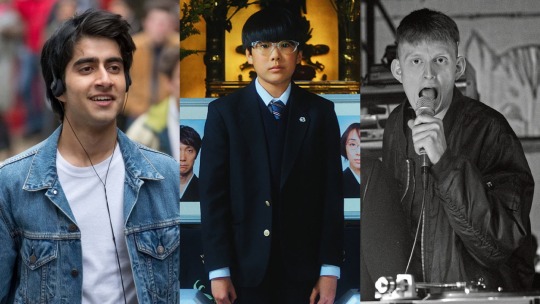
Blinded by the Light (co-written and directed by Gurinder Chadha)
We Are Little Zombies (written and directed by Makoto Nagahisa)
Beats (co-written and directed by Brian Welsh)
The protagonists in these first three films use music to feel their way through panic, brought on by both internal and external circumstances. Screaming another’s lyrics, furiously composing their own anthems, dancing along and sweating out their fear to the beat, the ongoing beat, and nothing more. It’s salvation, it’s release—when you’re left with your own thoughts, the only way to fight through them is to drown them out.
Music acts as a source of enlightenment in Blinded by the Light, directed by Gurinder Chadha (who made 2002’s coming-of-age sports banger Bend it Like Beckham). In Thatcher’s Britain, Pakistani-English Muslim high schooler Javed discovers the music of Bruce Springsteen, and his world bursts wide open. The wisdom and fire of the Boss helps Javed to make sense of his own frustrations; that the film is based on a real journalist’s autobiography makes it all the more potent.
Meanwhile, in Beats, a real-life law enacted in Scotland in the 1990s temporarily banned raves: specifically, the gathering of people around music “wholly or predominantly characterized by the emission of a succession of repetitive beats”. As the UK struggles to contain a youthful, exuberant new counter-culture, the central characters face what it means to enter adulthood. The answer to both: a forbidden rave.
“I have to say, there’s probably no such thing as teenagers without complicated emotions,” We Are Little Zombies writer-director Makoto Nagahisa tells me. The Japanese filmmaker—who loves the genre, known as ‘Seishun eiga’ in Japan—wrestles with the frustration and hopelessness of the world by giving his film’s four orphaned teens the tools, and the permission, to find solace in something other than their everyday life. Following the deaths of their parents, the quartet create their own catchy, cathartic, truth-bomb music; it’s an instant hit with kids across Japan, but the adults miss the point, of course—that the cacophony of superstardom is filling the silence of their mourning.
Nagahisa-san’s film is named after a fictional 8-bit Nintendo Game Boy game that the main character is addicted to. “I used to get through my day relatively painlessly by pretending I was a video game character whenever bad shit happened to me,” he explains. Teenagers “are constantly feeling crushed by reality right now… I want them to know that this is a valid way to escape reality. That reality is just a ‘game’. I want them to know they don’t need to face tragedies, they can just survive. That’s the most important thing!” Who else needed to hear that right now?

Jezebel (written and directed by Numa Perrier)
Zombi Child (written and directed by Bertrand Bonello)
Selah and the Spades (written and directed by Tayarisha Poe)
House of Hummingbird (written and directed by Kim Bo-ra)
Our next four films turn to technology, mythology, hierarchy and education to animate their protagonists’ lives with a greater purpose. In Jezebel, nineteen-year-old Tiffany finds her way through mourning with a new job, earning money as a cam girl and subsequently developing a bond with one of her clients. There’s a magnetic aura, one that harnesses grief and turns it into something more corrosive as this teen puts all her energy into it. Similarly there’s mysticism in the air in Zombi Child, in which Haitian voodoo gives a bored, heartbroken teenage girl a new purpose as she searches for a way to connect with the one she lost—and with herself.
Selah and the Spades and House of Hummingbird understand the third-party saviour as more of a structure, that of a school or an inspiring teacher. Selah finds herself by doing business selling recreational drugs to her classmates in a faction-led boarding school. Nothing mends a sense of aimlessness like power. This same framework lets Hummingbird’s Eun-hee, a schoolgirl in mid-90s South Korea whose abusive family invest their academic focus in her useless brother, search for love and find connection in her school books—and from the person who’s asking her to read them.
The films on this list are not perfect; some might be criticized for specifically following a formula, the tropes of the coming-of-age film, a little too well. Jezebel lets its protagonist rise and fall with familiarity, while Selah suffers the consequences of her extreme actions, and even Eun-hee reckons with a few recognizable pitfalls. But still, the fact that these films exist is “innately radical”, says Irish writer-director David Freyne, whose queer Irish comedy Dating Amber is covered below. The filmmaker describes the coming-of-age genre as mainstream, but in the best possible sense: “It’s a broadly appealing film,” he says.
This is why, to see these stories reframed with minority voices, with queer voices, is so quietly revolutionary. “The more you see them, the more broadly we see them being enjoyed—the more producers and financiers will realize these stories don’t have to be niche just because they happen to frame a minority voice. Everyone can enjoy it.”
Film journalist and Letterboxd member Iana Murray, a coming-of-age genre fan, echoes Freyne’s thoughts. “Representation is absolutely not the be-all end-all, but I’d love to see more coming-of-age films that reflect my experiences growing up as a woman of color,” she says, before introducing what I’d like to call the Rashomon Effect. “I see it as like one of those films that tell the same events from different perspectives, something like Rashomon or Right Now, Wrong Then,” she explains. “A story becomes even more vibrant when told through a different set of eyes, and that’s what happens when you allow women, people of color, and LGBT people to create coming-of-age narratives.”

Dating Amber (written and directed by David Freyne)
The Half of It (written and directed by Alice Wu)
Babyteeth (directed by Shannon Murphy, written by Rita Kalnejais)
Which brings us on nicely to our last three: wildly different titles, each with young protagonists at war with themselves, trying to make sense of their bodies and minds as best they can. In this context, companionship is everything. Finding a platonic soulmate in Dating Amber, a sexual awakening in The Half of It, a first love to make a short life worth living in Babyteeth. Each film is directed with a verve and passion that you know must be personal.
The story of a frustrated boy in the closet in Dating Amber aches with care from Freyne behind the camera, while Alice Wu directs Ellie Chu, the main character in The Half Of It, with patience and the kind of encouragement that quiet girls who live a life between two cultures are rarely given. And with Babyteeth, Shannon Murphy returns Australian cinema firmly to the center of the movie map, with a quintessentially Australian optimism and sense of humor, which Ben Mendelsohn called “delightfully bent”.
These perspectives are specific to each teen, but the intensity transcends genres and borders. It manifests musically, verbally, visually, aesthetically. These teens connect with their favorite music and means of entertainment, but also simply to their favorite clothes and accessories—blue bikinis and green wigs, red neck-scarves and floaty white dresses. These details give the characters ways to reinvent themselves while standing still, which certainly feels apt for a life lived, for now, at home.
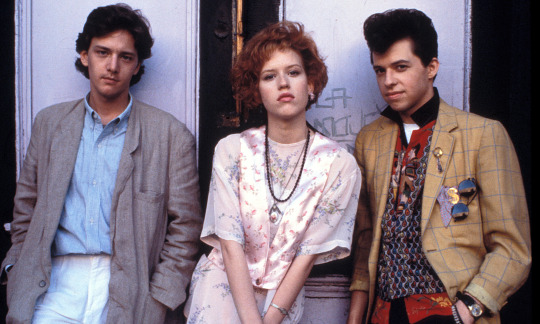
‘Pretty in Pink’ (1986), written by John Hughes and directed by Howard Deutch.
Many argue that the coming-of-age genre peaked with John Hughes, who defined the framework in iconic 1980s films that have his stamp all over them, whether he wrote (Pretty in Pink, Some Kind of Wonderful) or also directed them (The Breakfast Club, Ferris Bueller’s Day Off, Sixteen Candles). Hughes’ world view was of a specifically suburban, white, American corner of the world, which he filled with misfits and ultra-hip soundtracks. “John Hughes was to the genre what The Beatles are to rock and roll,” confirms Letterboxd member Brad, maintainer of the essential coming-of-age movie list Teenage Wasteland.
After Hughes, the genre tumbled, Dazed and Confused, into the 1990s—notable voices include John Singleton with his seminal Boyz n the Hood, and Gus Van Sant’s My Own Private Idaho and Good Will Hunting. This was also the decade of Clueless, which informed the bright, female-forward fare of the 2000s, like Mean Girls, The Princess Diaries and the aforementioned Bend it Like Beckham. The last decade has seen new American storytellers step into Hughes’ shoes, including Greta Gerwig (Lady Bird and Little Women), Olivia Wilde and the writers of Booksmart, and the autobiographical voices of Jonah Hill (mid90s) and Shia LaBeouf (Honey Boy, directed by Alma Har’el).
It’s interesting to note—whether it’s the 1860s or the 1980s—that many coming-of-agers from the past decade take place in an earlier period setting. Social media has demanded the upheaval of entire lives, but it seems some filmmakers aren’t yet ready to grapple with its place on screen.
The audience, on the other hand, is far more adaptable. The way we’re watching coming-of-age films has shifted, and it’s more appropriate for the genre than we could have imagined. On the last day of shooting Dating Amber, Freyne recalls one of the young actors asking, “So, is this going to be on Netflix or something?” This is when cinemas were still open.
“That’s often how younger people are devouring content now,” Freyne reasons. His film, in the end, was snapped up by Amazon (a US release date is yet to be announced). “It’s creating a communal experience with the intersection of social media: live streams, fan art, daily messages… It’s made us feel incredibly connected, moreso than I think we would have got with a cinematic release.”
Streaming platforms also cater to one key habit of a younger film lover: the rewatch. The iconic teen films of the 80s embedded their reputations thanks to the eternal allure of the Friday night video store ritual, and constant television replays. These days, it’s only with a film finding a home on Netflix, on Amazon or on Hulu, that a younger person (or, in times of global crisis, any person) can both financially and logistically afford to devote themselves to watching, again and again, these people onscreen that they’ve immediately and irrevocably found a connection with.
It’s always felt hard to be satisfied with just one viewing of a perfect coming-of-age film—observe how many times Iana Murray has logged Call Me By Your Name. What is it about the slippery, universal allure of the genre? It’s possibly as simple as the feeling of being seen in the fog of intergenerational confusion. Says Nagahisa-san: “Grown-ups think of teenagers like zombies. Teenagers think of grown-ups like zombies. We’re never able to understand what others are feeling inside.”
“The reaction is always emotive rather than intellectual,” adds Freyne. “There’s something quite visceral and instinctive about coming-of-age films; it’s an emotional experience rather than an analytical one.” That emotional experience is tied up in the fact that we often experience coming-of-age movies just as we ourselves are coming of age, establishing an unbreakable connection between a film and a specific period in our lives. MovieMaestro Brad explains it best: “There is a bit of nostalgia in a lot of these films that take me back to my younger days, when life was simple.”
But that’s not to say only those coming of age can appreciate a coming-of-age film. On her favorite coming-of-age film, Mike Mills’ 20th Century Women, Murray explains, “It doesn’t see coming-of-age as exclusive to teenagers, because that process of growth is really about transition and change.” (In a similar vein, Kris Rey’s new comedy I Used to Go Here, in select theaters and on demand August 7, meets Kate Conklin, played by Gillian Jacobs, in a sort of quarter-life-crisis, needing to grow down a bit in order to grow up.)
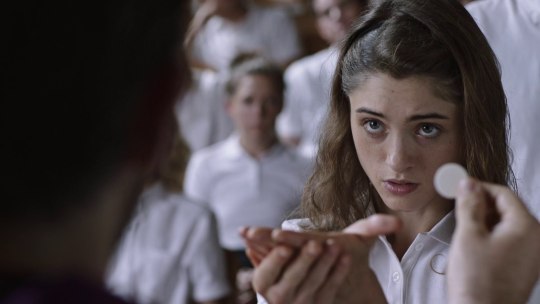
Natalia Dyer in ‘Yes, God, Yes’ (2019), directed by Karen Maine.
There is endless praise, conflict and wonder to be found in the ten films mentioned above—and all the ones we haven’t even gone near (Karen Maine’s orgasmic religious comedy Yes, God, Yes, now available on demand in the US, deserves an honorary mention, as does Get Duked!, Ninian Doff’s upcoming stoner romp in the Scottish Highlands). The thing about this genre is it’s raw, it’s alive, and it’s always in transition. Just when you might think it’s gone out of fashion, it emerges in a new and fascinating form. And yet, there are still so many filmmakers who haven’t tackled the genre. I asked my interviewees who they’d like to see take on a story of teens in transition.
“I’d love to see Tarantino’s take on a coming-of-age tale,” says master of the genre himself, MovieMaestro/Brad. Murray gives her vote to Lulu Wang, saying, “I love the specificity she brought to The Farewell, I think it would transfer well to a genre that needs to escape clichés.” Freyne, meanwhile, wants to see if Ari Aster might have another story about young people in him. Maybe something a bit less lethal next time.
Ultimately, “you write from empathy, not from experience,” says Freyne. I think the same goes for watching, too. It won’t be tomorrow, and it might not be this year, but eventually, the world will emerge from Covid-19. What will we have learned from the films that we watched while we were waiting? From the sadness, the angst, the determination, the rage and the passion?
Nagahisa-san already knows, and his advice is everything we need right now: “You don’t need others’ approval of who you are, as long as you understand and approve of yourself. Do whatever pops up in your mind. Live your life without fear or despair. Just survive.”
Related content
See where most of the recent releases mentioned here are virtually screening, in our Art House Online list.
Shannon Murphy talks to us about Babyteeth, and shares a list of her favorite Australian films.
Makoto Nagahisa’s 25 favorite teen movies
David Freyne’s 25 favorite LGBTQIA+ films
Growing Pains: The Ultimate Coming of Age Movie Challenge
(Happy) Queer Coming of Age Movies
Coming of age—but make it diverse
#coming of age#coming of age film#john hughes#pretty in pink#the breakfast club#ella kemp#iana murray#david freyne#dating amber#makoto naga#we are little zombies#makoto nagahisa#teenage wasteland#teen films#the half of it#alice wu#ellie chu#blinded by the light#gurinder chadha#bend it like beckham#clueless#mean girls#greta gerwig#lady bird#booksmart#little women#olivia wilde#letterboxd
8 notes
·
View notes
Text
Given Translations Index
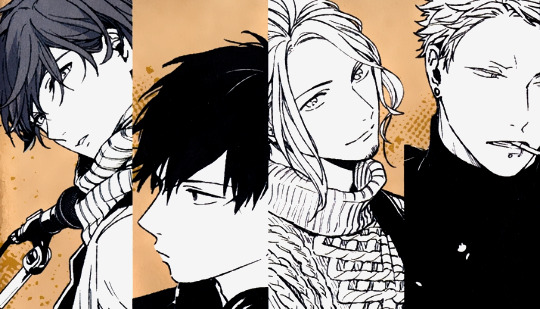
Masterpost for my translations of official Given content. Feel free to message me about possible corrections, and please consider supporting the creators by purchasing the official releases.
Interviews
Tokushima Shinbun (Yano Shougo)
Animate Times (Centimillimental)
Animate Times (Yano Shougo)
Animate Times (Uchida Yuuma)
Mantan Web (Eguchi Takuya)
Mantan Web (Nakazawa Masatomo)
Mantan Web (Asanuma Shintarou)
Mantan Web (Uchida Yuuma)
Mantan Web (Yano Shougo)
Entretainment OVO (Eguchi Takuya)
TV Guide (Eguchi Takuya, Nakazawa Masatomo, Asanuma Shintarou)
Gazette Toushin (Eguchi Takuya, Nakazawa Masatomo, Asanuma Shintarou)
Anime Eiga (Eguchi Takuya, Nakazawa Masatomo, Asanuma Shintarou)
Animate Times (Eguchi Takuya, Nakazawa Masatomo, Asanuma Shintarou)
Web Newtype (Eguchi Takuya, Nakazawa Masatomo, Asanuma Shintarou)
Screen+ (Yano Shougo and Uchida Yuuma)
SPICE (Yano Shougo, Uchida Yuuma, Eguchi Takuya, Nakazawa Masatomo, Asanuma Shintarou)
Staff and Cast Comments
New Year’s Cast Comment
Movie Staff Comments
Movie Cast Comments
#given#fyeahgiven#dailygiven#givendaily#given anime#satou mafuyu#uenoyama ritsuka#kaji akihiko#nakayama haruki#index#my translations#kizu natsuki#gusari#when i saw the new interviews i was like#'welp time to make an index then'#lol
453 notes
·
View notes
Text
“Descargar” Anime — Ver!! Gratis 〘Given〙 Pelicula Completa online sub espanol {latino HD} 2020
Given Película Completa en Español Online, Ver Given Película Completa en Castellano, Ver Given Película Completa Subtitulada Given 2020
Given online gratis,Given online repelis,Given online hd,Given online cuevana,Given online completa,Given online latino,Given online ver,Given online argentina,Given online gratis pelisplus,Given online gratis completa
Haga clic aquí ??? https://bit.ly/2Yrx2hL
Haga clic aquí ??? https://bit.ly/2Yrx2hL
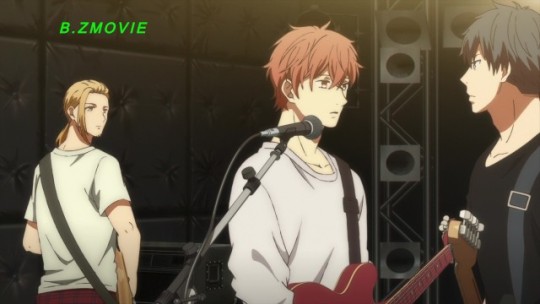
Given 2020 De La Pelicula Completa En Español
Y es que desde su estreno el pasado mes de julio, la adaptación
animada de la obra de Natsuki Kizu no ha cesado de ganar
adeptos. Un proyecto que cerró sus primeros 11 episodios
conrmando que su historia continuaría el próximo año a
través de una película. Proyecto del que ya conocemos cuándo
se realizará su estreno en Japón: primavera de 2020,
concretamente, el próximo 16 de mayo.
Given" estrenó su anime durante el pasado 2019 para mostrar una historia de música, amor y sentimientos a flor de piel que enamoró a muchos espectadores. Es por ello que ante las noticias de su largometraje para 2020 se generaron expectativas muy altas por el regreso de la IP… hasta que se anunció su retraso a causa del coronavirus. Ahora, afortunadamente, contamos ya con una nueva fecha de estreno para la película.
Seguidamente os dejamos con el tuit por el cual hemos podido confirmar el nuevo estreno de la cinta:
Como podemos comprobar, la película de “Given” se estrenará ahora durante el 22 de agosto de 2020. En caso de que exista duda, recordaremos que este largometraje no tratará de la relación de Mafuyu y Uenoyama, la cual fue explorada durante el anime, sino que se hará énfasis en sus miembros más veteranos: Akihiko y Haruki. En tal sentido, durante el anime quedan bien claros los sentimientos de Haruki, por lo que en la película sería de esperar una evolución y conclusión en cuanto a la relación de ambos.
Por otro lado, destacaremos que “Given” fue solo una víctima más de todos los animes y películas que durante estos meses han sucumbido al efecto del coronavirus. En el siguiente artículo podréis encontrar todos los animes que siguen retrasados y varios de los que ya han recuperado su estreno:
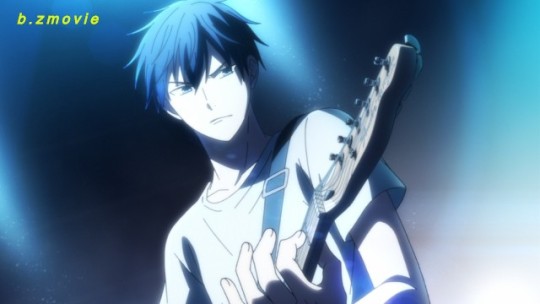
Given Pelicula Reparto (Elenco)
Animación
La pelicula De Given Historia Resumen
La película de Given, que estará basada en el manga de Natsuki Kizu que lleva el mismo título, reveló su fecha de estreno y una nueva imagen. Además se revelaron nuevos detalles sobre la cinta, como la participación de los responsables del anime de Given en esta adaptación para la pantalla grande.
La película de Given se estrenará el 16 de mayo en Japón. Además revelaron que Centimillimental interpretará el tema de la película, artista que también estuvo a cargo del opening del anime titulado “Kizuato.” Además revelaron una bonita imagen de la cinta animada:
También filtraron el diseño que tendrás los boletos para la cinta, mismos que tendrán una ilustración en un formato como de redes sociales para que te tomes una selfie con tus personajes favoritos:
De la película Given Sinopsis
“Aferrándose a su Gibson, Mafuyu Satou sale de su apartamento para empezar otro día más de su vida en el instituto. Más tarde, mientras se echa una siesta en las escaleras que van al gimnasio del centro, se encuentra por casualidad con otro estudiante: Ritsuku Uenoyama, quien le echa bronca por permitir que las cuerdas de su guitarra estén en tan mal estado. Al ver todo lo que Uenoyama sabe sobre el instrumento, Satou le pide que lo arregle y le enseñe cómo tocarlo. Uenoyama acaba aceptando y le invita a una sesión de pruebas con sus compañeros de grupo: el bajista Haruki Nakayama y el batería Akihiko Kaji”.
La película Given Reviews
A través del sitio web oficial para la adaptación al anime del manga Given, el cual es escrito e ilustrado por Natsuki Kizu, se reveló un nuevo vídeo promocional para la cinta que dará final a la franquicia animada. Este filme se estrenará el próximo 22 de agosto en cines de Japón.
La película estaba programada originalmente para estrenarse el pasado 16 de mayo, sin embargo, debido a los efectos de la pandemia de COVID-19 se tomó la decisión de retrasarla indefinidamente.
Por su parte, Kizu comenzó la publicación del manga en la revista Cheri Plus de la editorial Shinshokan en abril de 2013. La editorial publicó el quinto volumen recopilatorio en abril de 2019.
La obra inspiró una adaptación al anime de doce episodios producida por los estudios Lerche, bajo la dirección de Hikaru Yamaguchi y guiones escritos por Yuniko Ayana, estrenada en julio de 2019.
Título original
Eiga Given
Año
2020
País
Japón Japón
Dirección
Hikaru Yamaguchi
Guion
Yuniko Ayana (Manga: Natsuki Kizu)
Música
Michiru
Fotografía
Animación
Reparto
Animación
Productora
Lerche, Aniplex
Género
Animación. Drama. Romance. Musical | Manga. Música. Homosexualidad. Secuela
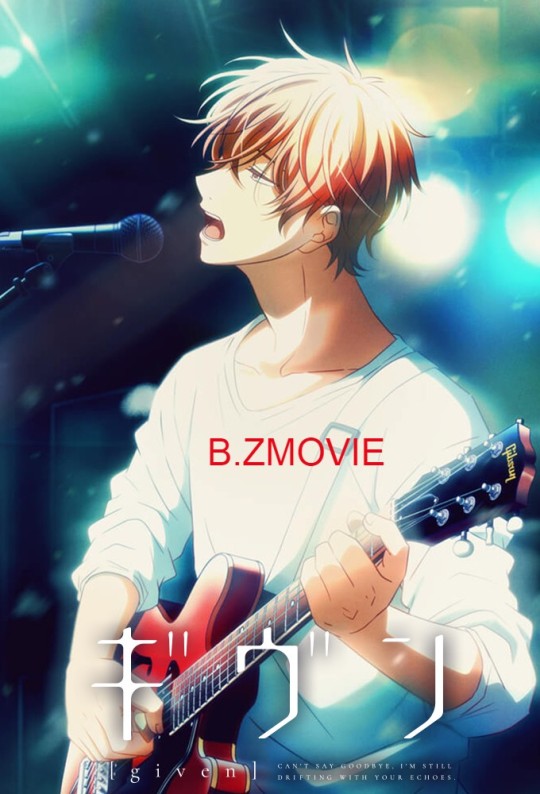
Categorías: Películas en español Películas de Argentina Películas de 2020 Películas de suspenso Películas policíacas Películas de cine de comedia Películas dirigidas por Ariel Winograd Películas ambientadas en Buenos Aires Películas dramáticas de Argentina Películas dramáticas de los años 2000 Películas rodadas en Buenos Aires Películas sociales y políticas Películas basadas en hechos reales
castellano o con subtítulos en tu idioma y de todos los géneros: terror, comedia, acción, thriller, @VER AQUI ?> @VER AQUI ?> drama y
ciencia ficción. También series online o descargar pelis y más… mucho
más
VER Película Given GRATIS en Español o con subtítulos en tu
idioma, en HD –y hasta en calidad de imagen 4K–y sin cortes ni
interrupciones es sencillo en las mejores páginas de cine y televisión
gratuitas del año. ¿Cuáles son exactamente estas webs? A continuación te detallamos todo lo que debes saber para ver las mejores pelis cuando
quieras, donde quieras y con quien quieras. Incluso aprenderás a
descargar Película gratis online de forma absolutamente legal y segura
este Película, sin necesidad de pagar mensualmente una suscripción a
servicios de streaming Given premium como Netflix, HBO GO, Amazon Prime
Video, Hulu, Claro Video, Fox Premium, Movistar Play, DirecTV, Crackle o Blim, o de bajar apps de Google Play o App Store que no te ayudarán
mucho a satisfacer esa sed cinéfila y seriéfila. ¿No te es suficiente?
¿Quieres más trucos? También te enseñaremos a usar los sitios premium de Película Given , series y documentales sin pagar absolutamente nada. Sí, es posible. ¿Y los códigos secretos de Netflix? También. ¿En cuanto a
series? Podrás ver series de acción, terror, aventura, telenovelas
mexicanas y turcas, doramas, anime y más, mucho más, como las más
recientes novedades: Narcos: México, The Sinner 2 y La reina del flow.
Incluso te contaremos qué Película están en la cartelera de los cines
del Perú, México, España, Estados Given , Colombia, Argentina, Español y demás países del mundo. Sí, ¡los últimos estrenos! ¿Por ejemplo? Given ,
Given , Given , ¡Asu mare 3! y Given ya están disponibles en las mejores
salas. Seguramnte en más de una ocasión has buscado en Google “cómo Given Película online gratis Película en Español” o “dónde ver pelis Given
de estreno en castellano HD”.
Tal vez hasta has escrito en el buscador “las mejores Given Película
online completas”, “Given Película en Español latino” o “dónde puedo Given Película gratis completas sin interrupciones”. No lo niegues. No eres el único. Todos los días, millones de personas intentan ver
Película online desde sus computadoras, laptops, smartphones, tablets o cual sea el dispositivo móvil de su preferencia. Sin embargo, la
navegación muchas veces termina en páginas web que no cumplen lo
prometido, que aseguran tener los últimos estrenos, pero que solo te
derivan de un site a otro, que te obligan a dar clic tras clic mientras
te llenan la pantalla de publicidad, para finalmente dirigirte hasta un
enlace que no funciona o que demora mucho en cargar. Además, la calidad
de imagen en estas páginas informales de cine es muy baja. Y repetimos,
informales. ¿Por qué? Porque son páginas piratas, que violan derechos de autor y que incluso pueden representar un riesgo. ¿Sabías que muchos de estos sitios esconden virus que podrían dañar tus dispositivos y hasta
robar tu información? En todo caso, muchas veces te obligan a
registrarte con tus cuentas de Facebook, Gmail u Outlook (Hotmail) para
que recién puedas comenzar a Given pelis en Español latino. Por
tanto, te sugerimos solo visitar las siguientes plataformas, legales,
seguras y sacramentadas. Algunas incluso permiten escuchar y descargar
música MP3 gratis de tus artistas favoritos. ¿Cuáles son las mejores
páginas para Given Película HD online gratis? En sí hay muchas de
este tipo, pero para efectos prácticos hemos elegido algunas de las más
populares en la red de redes. Ya dependerá de ti elegir la que mejor se
adapte a tus necesidades, ya sea por catálogo, por interfaz o velocidad
de Internet. Es decir, la que te permita ver Película gratis en Español con mayor facilidad. Incluso algunas tienen versiones para teléfono si
buscas dónde ver Película online móvil. ¿Quieres saber cuál es la mejor app para ver Película online? Esa ya no será ninguna preocupación de
aquí en adelante. ¿Qué velocidad necesitas para ver Película online? En estas páginas, con una conexión básica te alcanzará y sobrará. ¿Qué
plugin necesito para ver Película online? En la mayoría de casos,
¡ninguno! ¿Puedo encontrar dónde ver Película 3D online? Eso quizá está un poco más difícil. Given Ver Película online gratis A continuación
todo lo que debes saber para Given Película online Ojo, la lista
solo contempla páginas online legales, que albergan contenido de dominio público, independiente, liberado por sus mismos realizadores o con
licencias como Creative Commons. Es decir, si quieres ver Animales
Fantásticos 2 completa en Español o Given , La chica en la telaraña,
Overlord, Given o Given con subtítulos, puede que te decepciones. Pero si
aún te interesan títulos de reciente estreno como estos, aquí puedes
revisar la cartelera de tu país de origen, incluidos horarios y precios
de entradas por cine. También descubre los próximos estrenos. Eso sí,
¿sabías que hasta puedes ver Película gratis en YouTube? Puedes
suscribirte al servicio de paga de YouTube para acceder a contenido
exclusivo que jamás has imaginado. Los tres primeros meses son gratis.
Classic CinGiven es una de las páginas de curaduría de clásicos más populares en la red. El sitio está dedicado por completo a la
distribución de Película de libre acceso, liberadas de derechos de
autor. Por ejemplo, su catálogo de cine mudo es excepcional. ¿Lo mejor
de todo? Puedes ver las Película desde YouTube, por lo que navegar es
sencillísimo.
DESCARGAR-SUB ESPAÑOL!! Donde se puede ver Given Pelicula Completa en línea de alta definición? [opEnlOad] [pelis24-película] Given Pelicula Completa !(2020) Película completa Ver en línea gratis HQ Cuevana
Ver Given Películas completas en línea 2020 HD gratis !! Given Pelicula Completa (2020) con subtítulos en inglés listos para descargar, Given Películas completas 2020 720p, 1080p, BrRip, DvdRip, alta calidad.
Descripción:Ver Given Pelicula Completa (2020) : Película completa en línea gratis 27 años después de superar la malévola entidad sobrenatural Pennywise, los ex miembros del club de perdedores, que han crecido y se alejó de Derry, son reunidos de nuevo por una devastadora llamada telefónica.Ver Given (2020): película completa en línea gratis Cr Given Awar-Endurecido y su comandante moro, revuelta audazmente contra la corona Inglés corrupto. Given Pelicula Completa (2020) ¿Cuánto tiempo dormiste durante la película Given Pelicula Completa?Them onlineic, la historia y el mensaje fueron fenomenales en Given Pelicula Completa. Nunca podría ver otra película cinco veces como lo hice con esta. Volver a ver una segunda vez y prestar atención. Ver película en adelante WEB-DL Esta es una pérdida de archivos menos capturada por el capitán Stream Marvel, como Netflix, Amazon Video, Given Pelicula Completa Hulu, Crunchy Roll, DiscoveryGO, BBC iPlayer, etc. También es una película o programa de televisión que se puede descargar a través de un sitio web de distribución en línea, como iTunes.
cuevana película ver Given (2020) :Película completa en línea gratis Un cruzado endurecido por la guerra y su comandante moro mountan revuelta audaz contra la corona inglesa corrupta..ver Given online Miles Morales está haciendo malabares con su vida entre ser un estudiante de secundaria y estar Given Películas completas. Sin embargo, cuando Wilson “Kingpin” Fiskusa un súper colisionador, otro Given Películas completas de otra dimensión, Peter Parker, accidentalmente termina en la dimensión de Miles. A medida que Peter entrena Miles para convertirse en un better Given , pronto se les unen otros cuatro Given desde el otro lado del”Given ”. A medida que todas estas dimensiones enfrentadas comienzan a desgarrarseBrooklyn, Miles debe ayudar a los demás a detener a Fisk y devolver a todos a sus propias dimensiones.“Given (2020) Reloj de película completa”:El remolque Given finalmente está aquí, y todos estamos en el final del juego ahora. Para más contenido impresionante, echa un vistazo: Síguenos en Google mvlabshd Presenta
Given online hd cuevana
Given online hd descargar
Given online hd latino
ver Given online hd bananahd
Given online latino hd gratis
Given pelicula online hd
Given 2020 online hd
Given online cuevana gratis
Given online gratis
Given online latino
Given online hd
Given online gratis completa
Given online gratis 2020
Given online subtitulada
Given online gratis pelisplus
Given online completa repelis
Given online completa cuevana
Given online completa gratis
Given online completa pelisplus
Given online completa 2020
Given online completa gnula
Given online completa youtube
Given online latino gratis
Given online latino cuevana
Given online latino repelis
Given online latino gnula
Given online latino hd
Given online latino ver
Given online latino hd gratis
Given online subtitulada
Given online ver gratis
Given ver online cuevana
Given ver online hd
Given ver online 2020
Given ver online gratis repelis
Given ver online pelicula completa
Given ver online completa
Given ver online pelispedia
Given argentina online gratis
Given ver online argentina
Given online sub
Given online sub español
Given online gratis
Given online español
Given online film
Given online free
Given online castellano
ver película Given online gratis
ver película Given online subtitulada
ver Given película completa online gratis
Given película completa en español online gratis
Given película online
Given película completa gratis
Given movie online
Given película completa sub español
3 notes
·
View notes